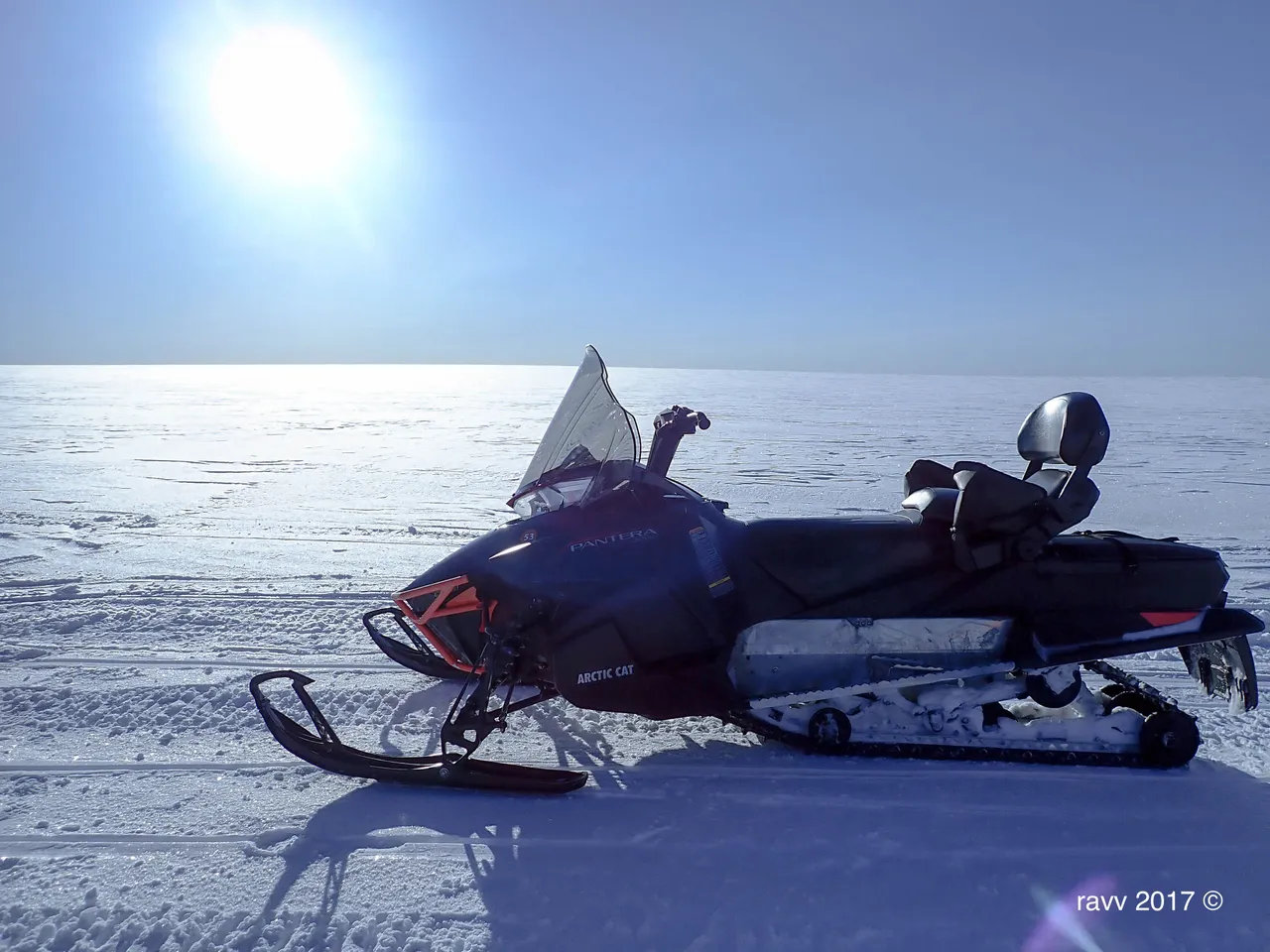
More than adventure, Geological wonderland: Mýrdalsjökull, Skógafoss, Reynisfjara
I never took my Mom and Dad for the adventurous kind, but this trip proved me wrong otherwise.
They woke up early to make their way to the Arcanum Glacier tour where they were going to ride snowmobile. It was a 2-hour drive from their hotel.
The tour started with a short briefing and “gearing-up” at the main base. It was very cold, windy with strong sunshine right above their heads, hence the outfit and gear were very crucial.
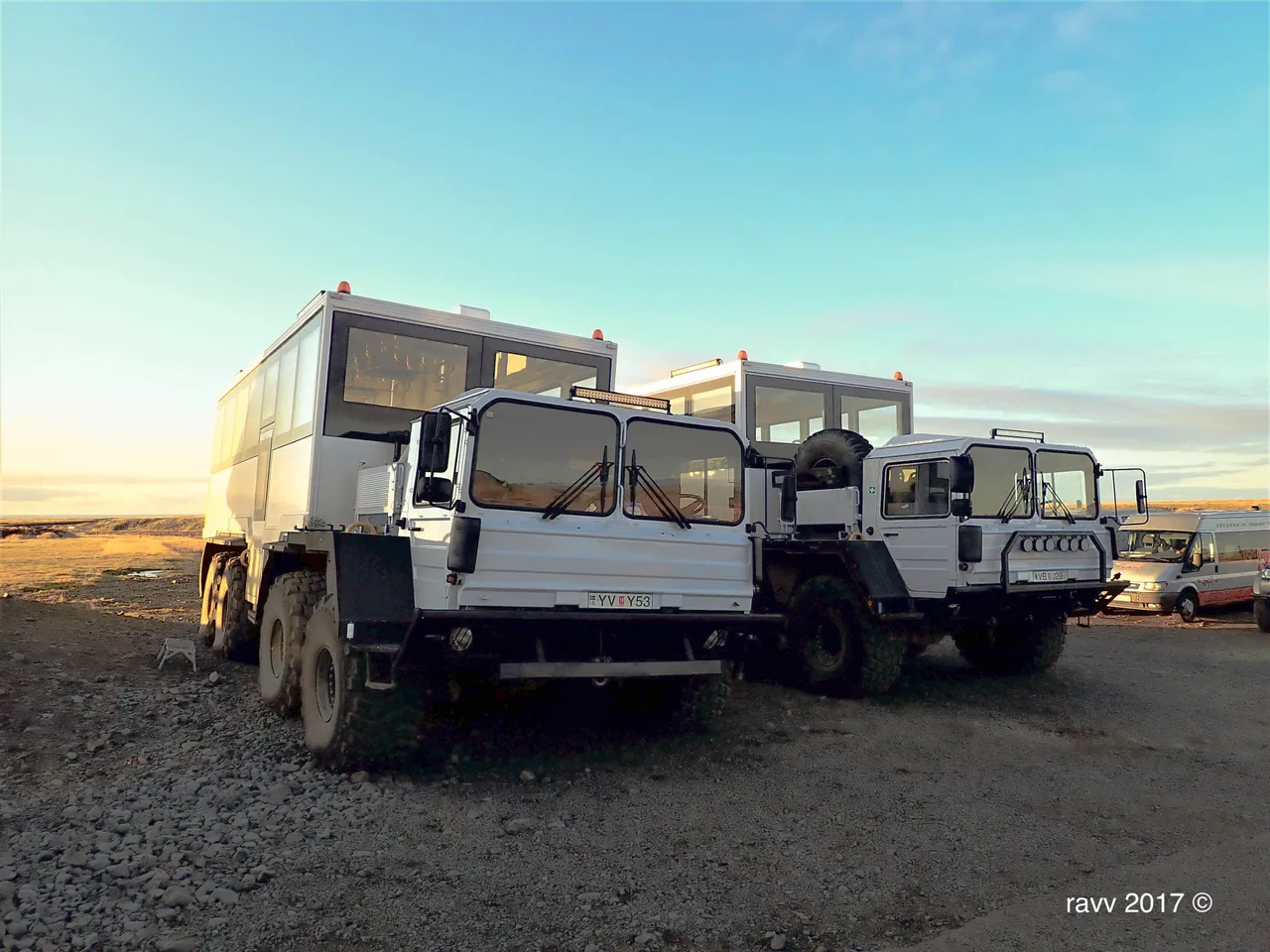
They boarded a real glacier truck, which took them up the mountain towards the glacier and the snowmobile station. It was a 1-hour drive from the main base. The snowmobile ride took them to the top of Mýrdalsjökull glacier.
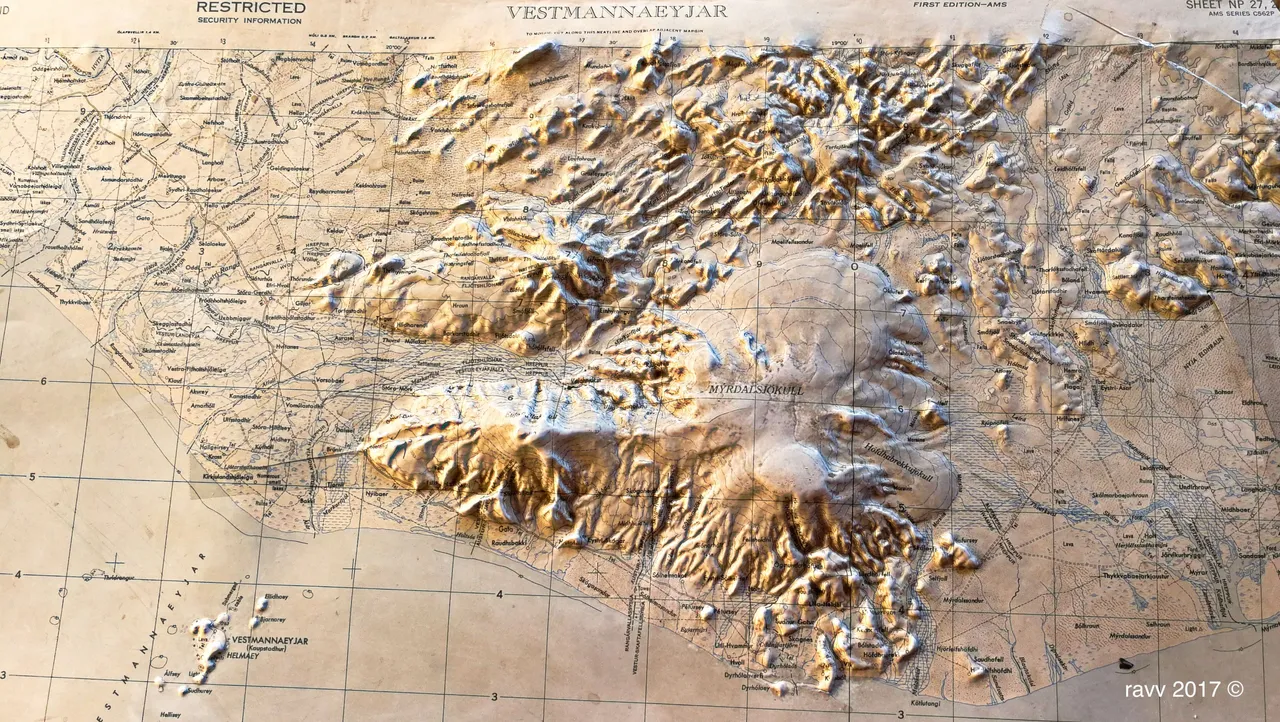
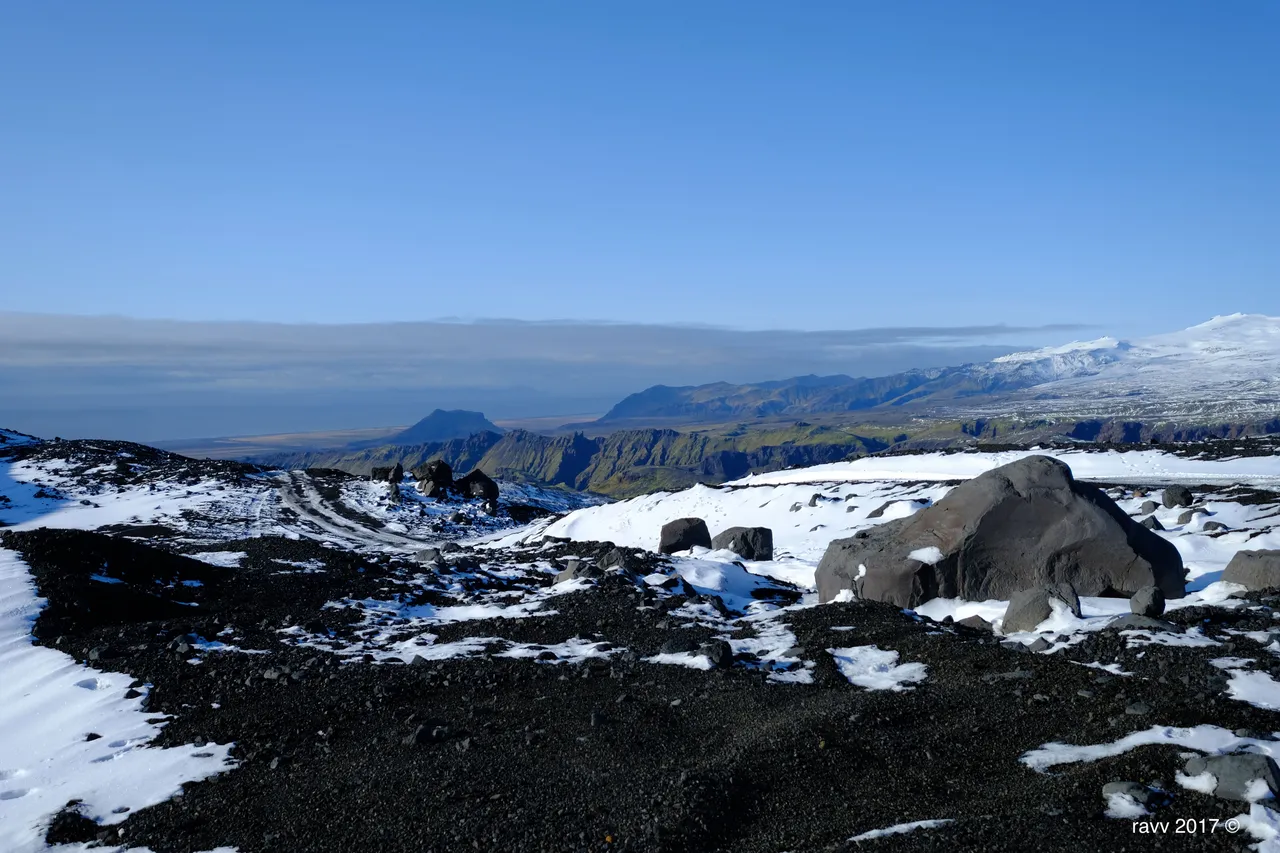
Facts
Mýrdalsjökull glacier is the fourth largest glacier in Iceland and one of the most dramatic.
The glacier covers nearly 600 km2 with the peak reaching almost 1,500 m high.
The glacier partially lies on Katla, which is an active volcano that erupts every 40-80 years. The last eruption was in 1918, so scientists are actively monitoring this volcano!
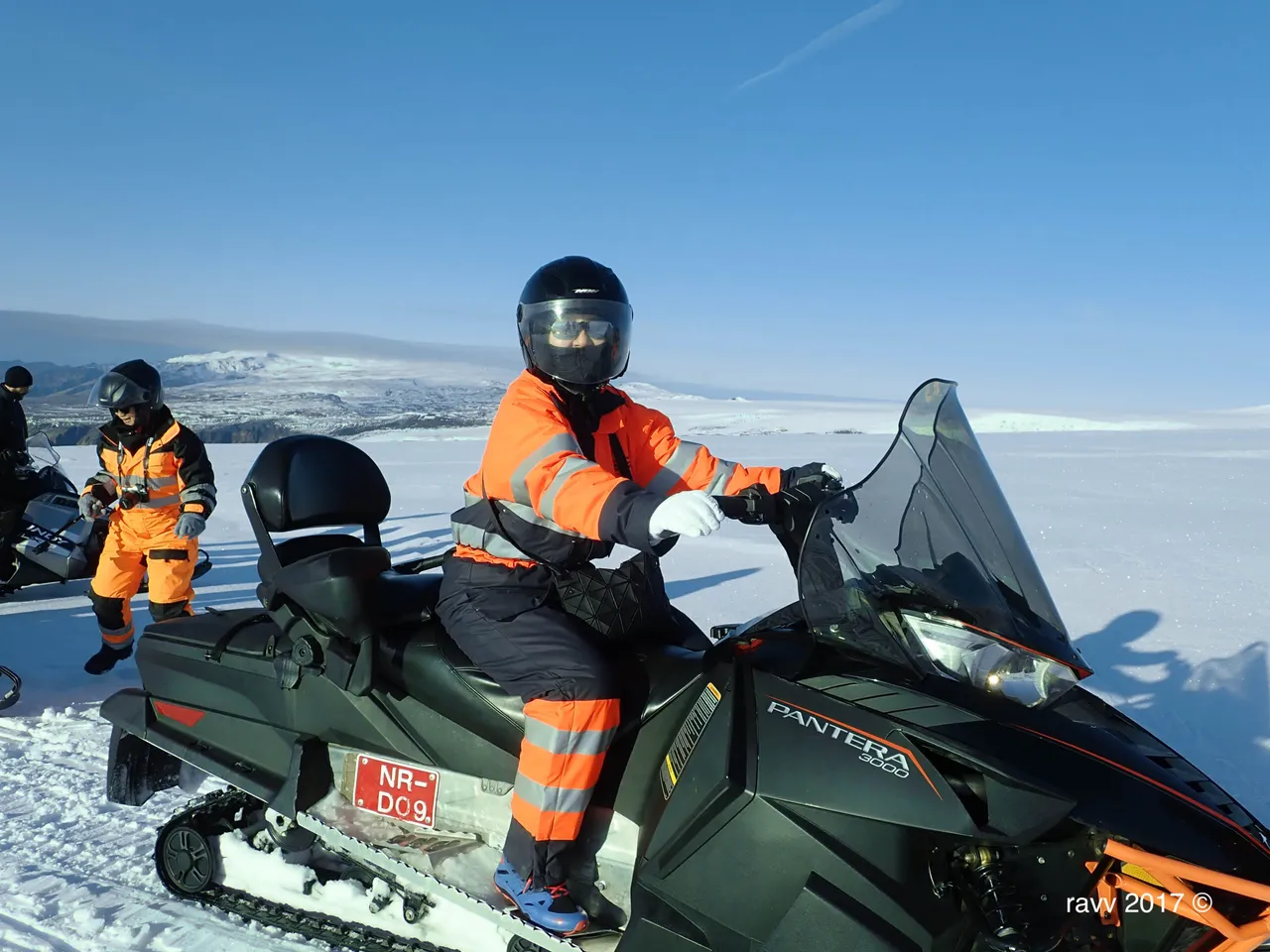
Initially, my Mom wanted to ride the snowmobile by herself, but as it was very heavy (300 kg), she was afraid that she would not be able to control it. She changed her mind and let her bodyguard, my Dad, ride instead while she sat back and enjoyed the view.
Regardless, she still managed to take a solo picture on the snowmobile :)
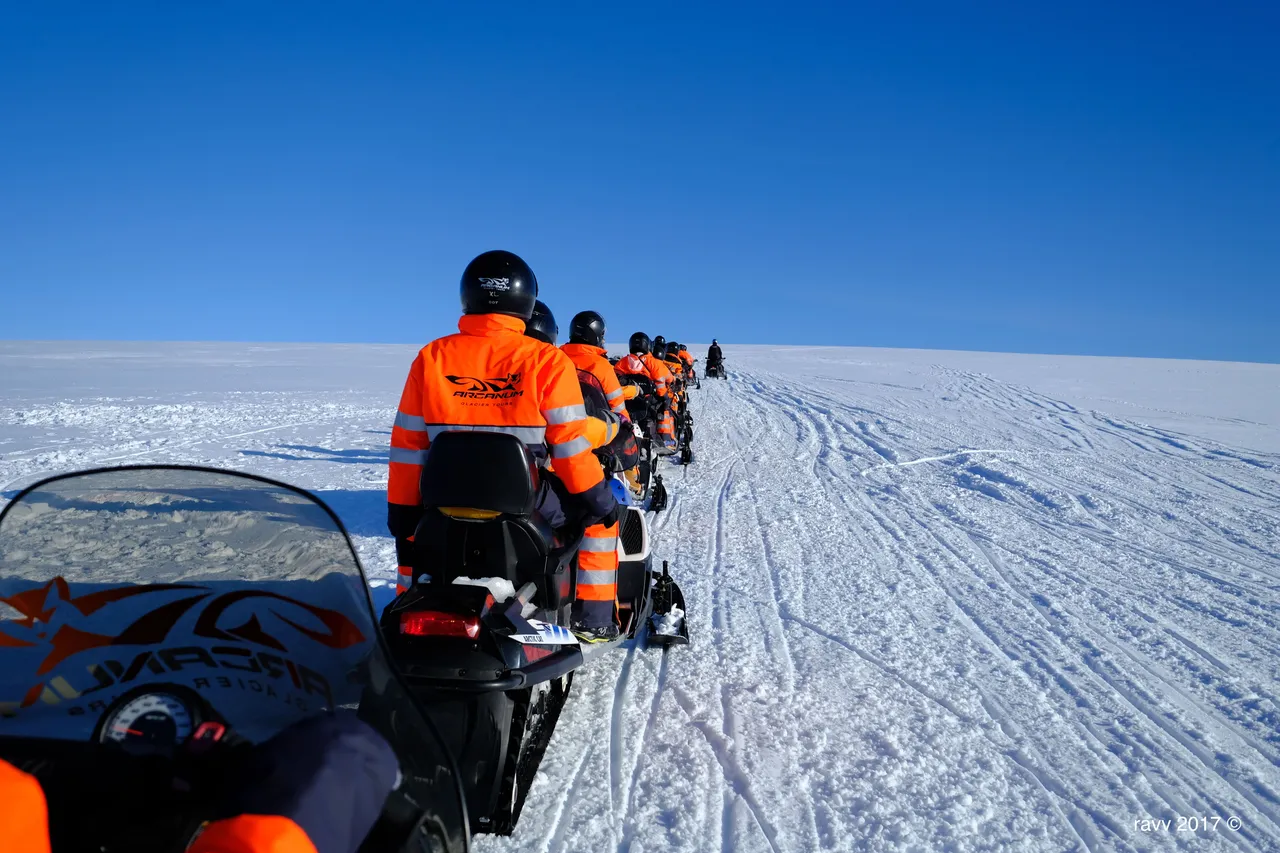
The ride was not smooth, but it was a fun ride. The scenery was exceptional and riding on the snowmobile was an unforgettable experience! They were extremely hungry after the ride.
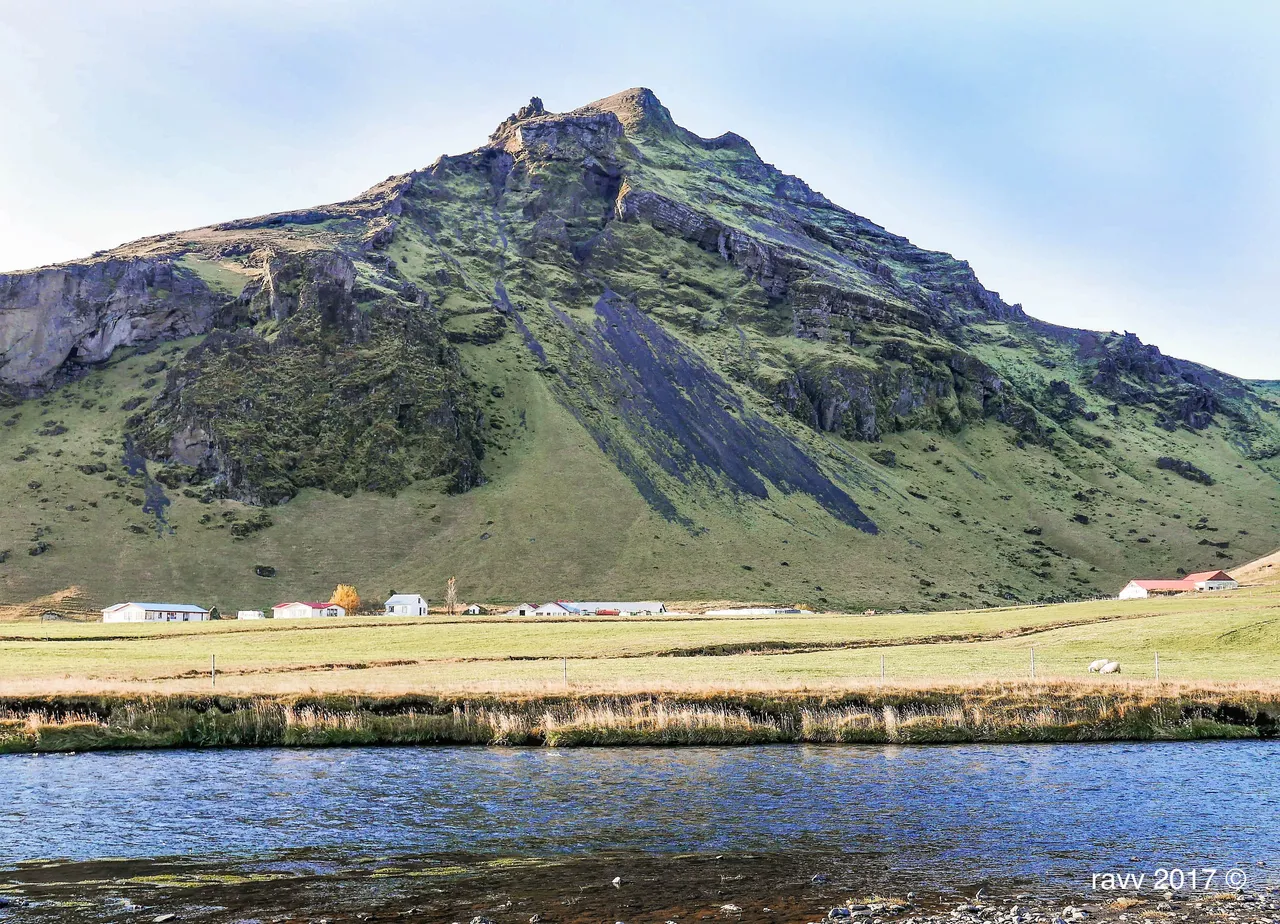
My Mom and Dad were still on the ring road of Golden circle route. There were more than hundreds of waterfalls on this route. They stopped at another famous waterfall, Skógafoss.
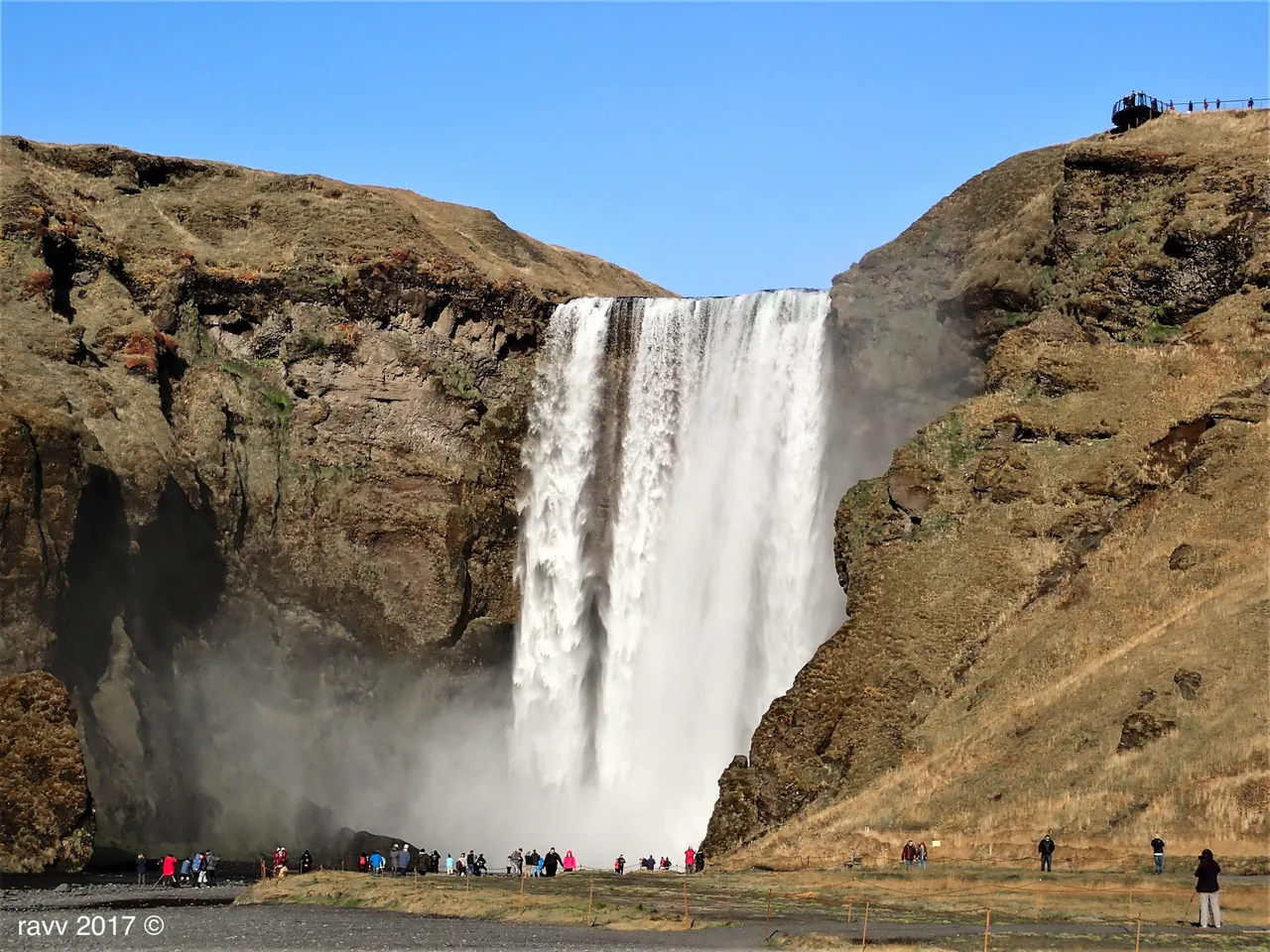
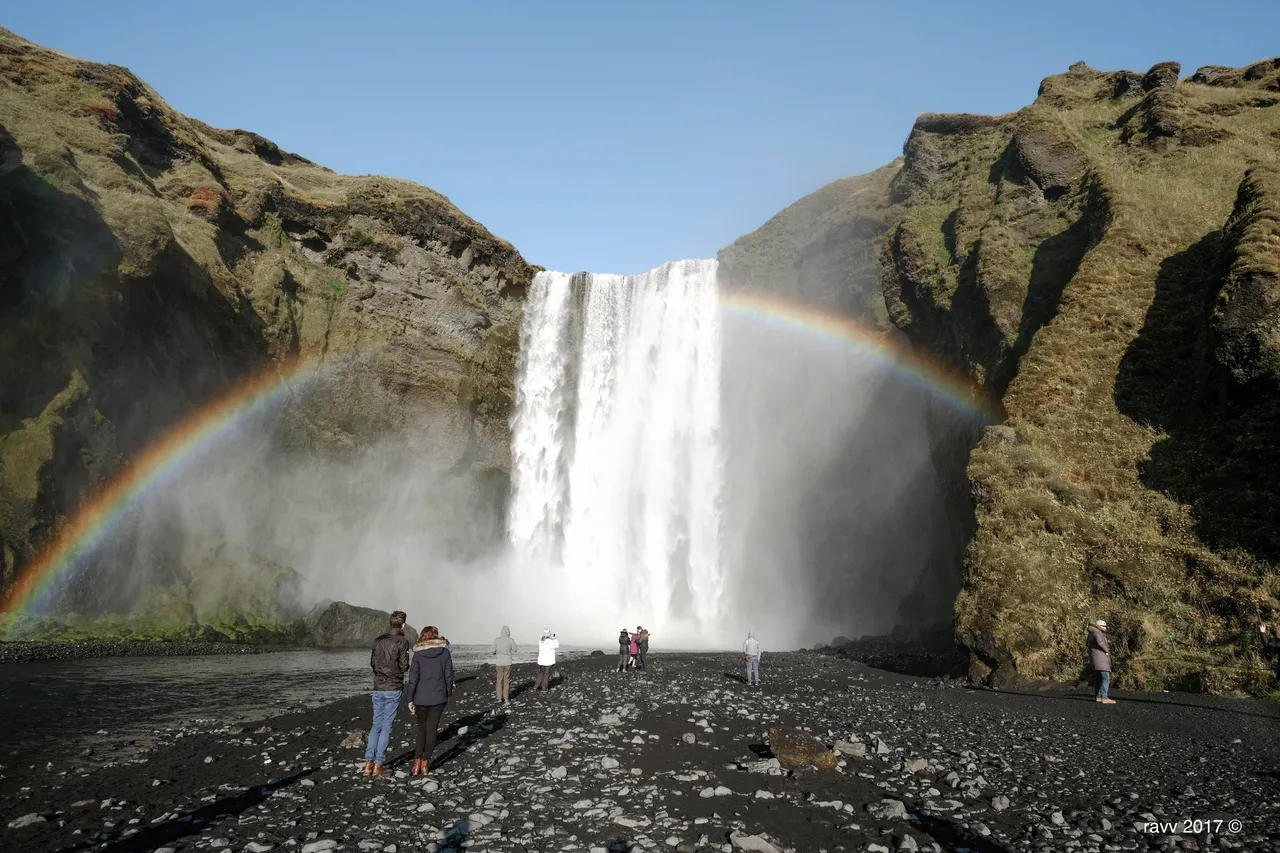
Facts
Skógafoss is one of the biggest waterfalls in Iceland with a drop of 60 m.
Rainbow (single and double!) are usually visible on sunny days. This is due to the spray of water that the waterfall consistently produces.
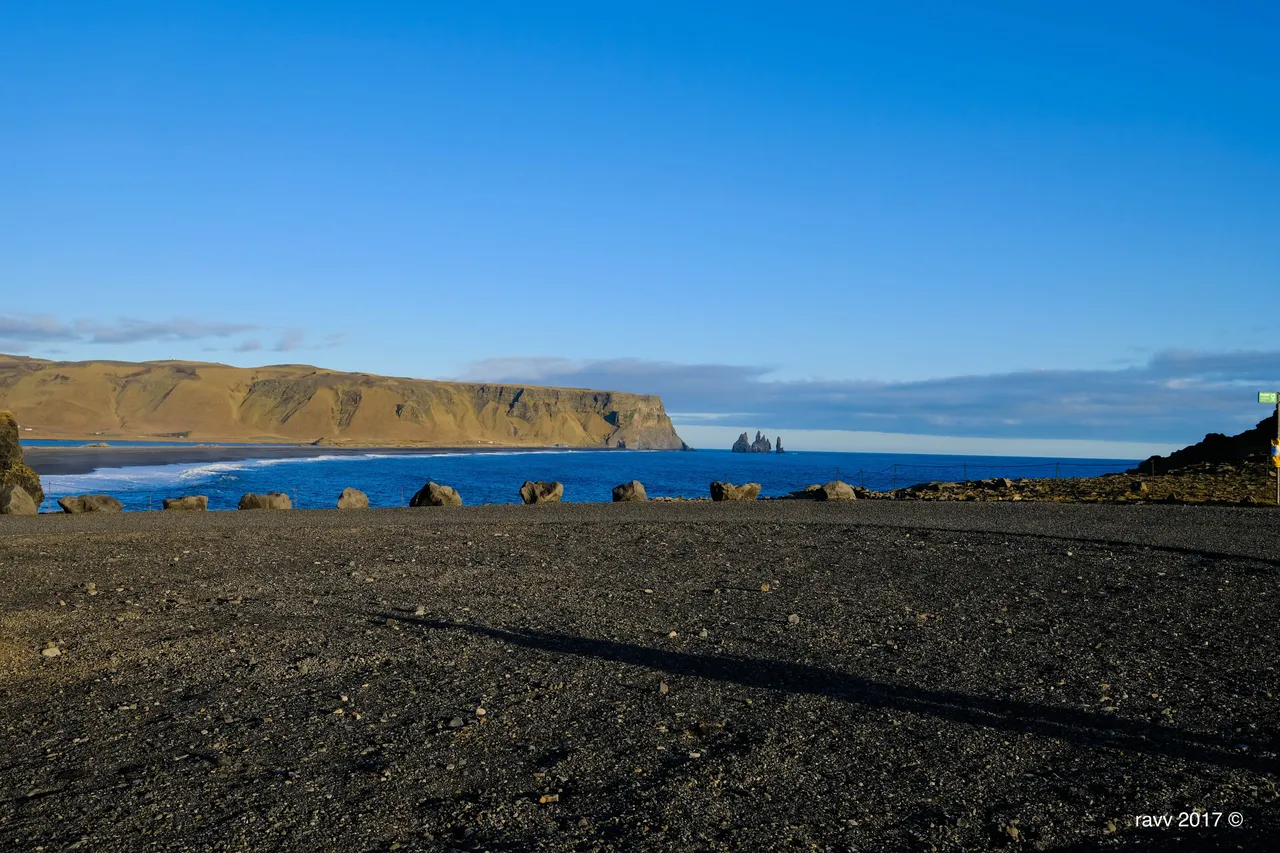
They then headed to their next destination, Reynisfjara Black Sand Beach, which was absolutely stunning. The black sand beach of Reynisfjara is one of the most unique beaches in the world. It was created by lava flowing into the ocean which cooled almost instantly as it touched the water.
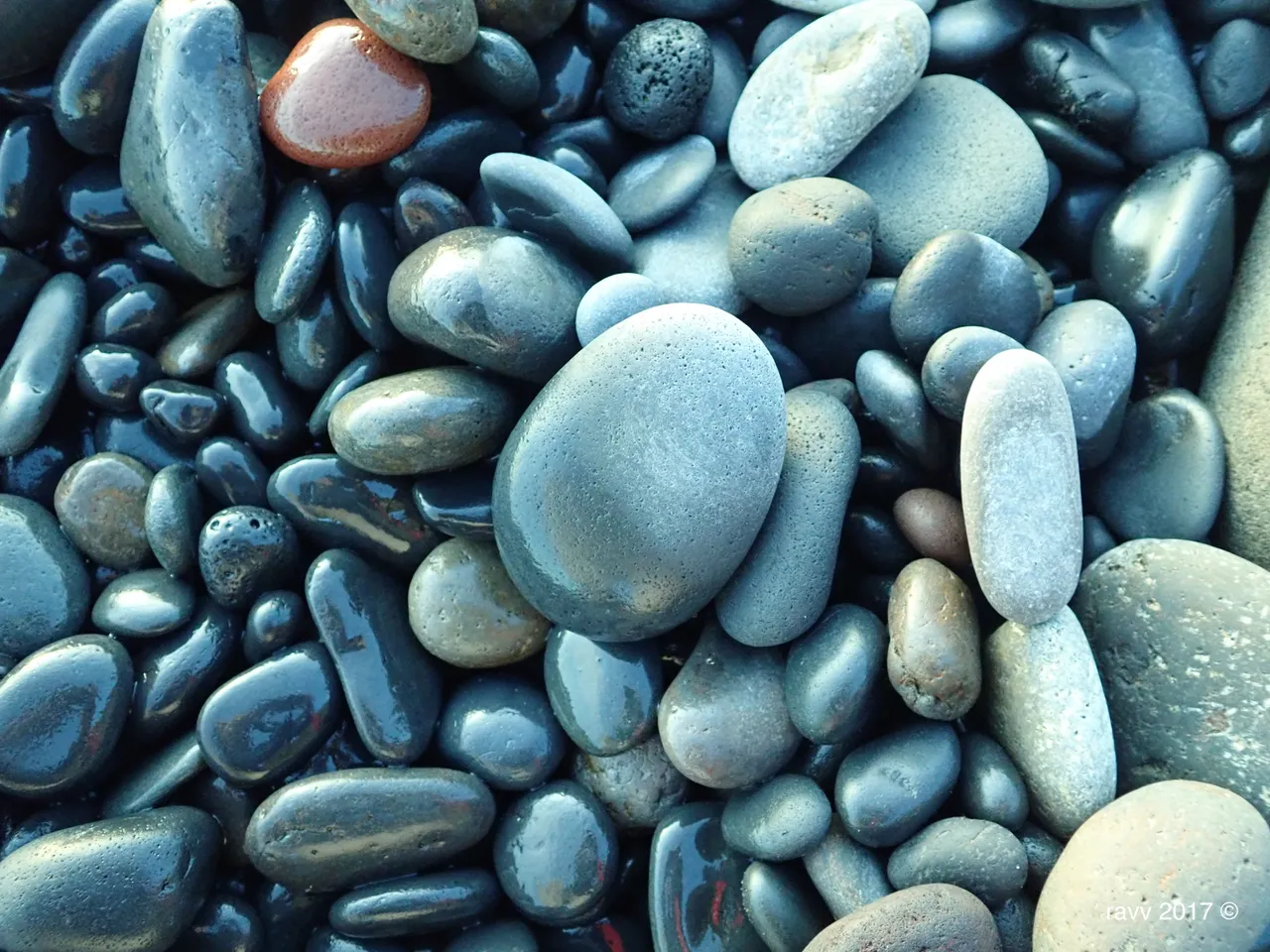
Actually, it was not only sand, but also various sizes of shiny black pebbles and stones.
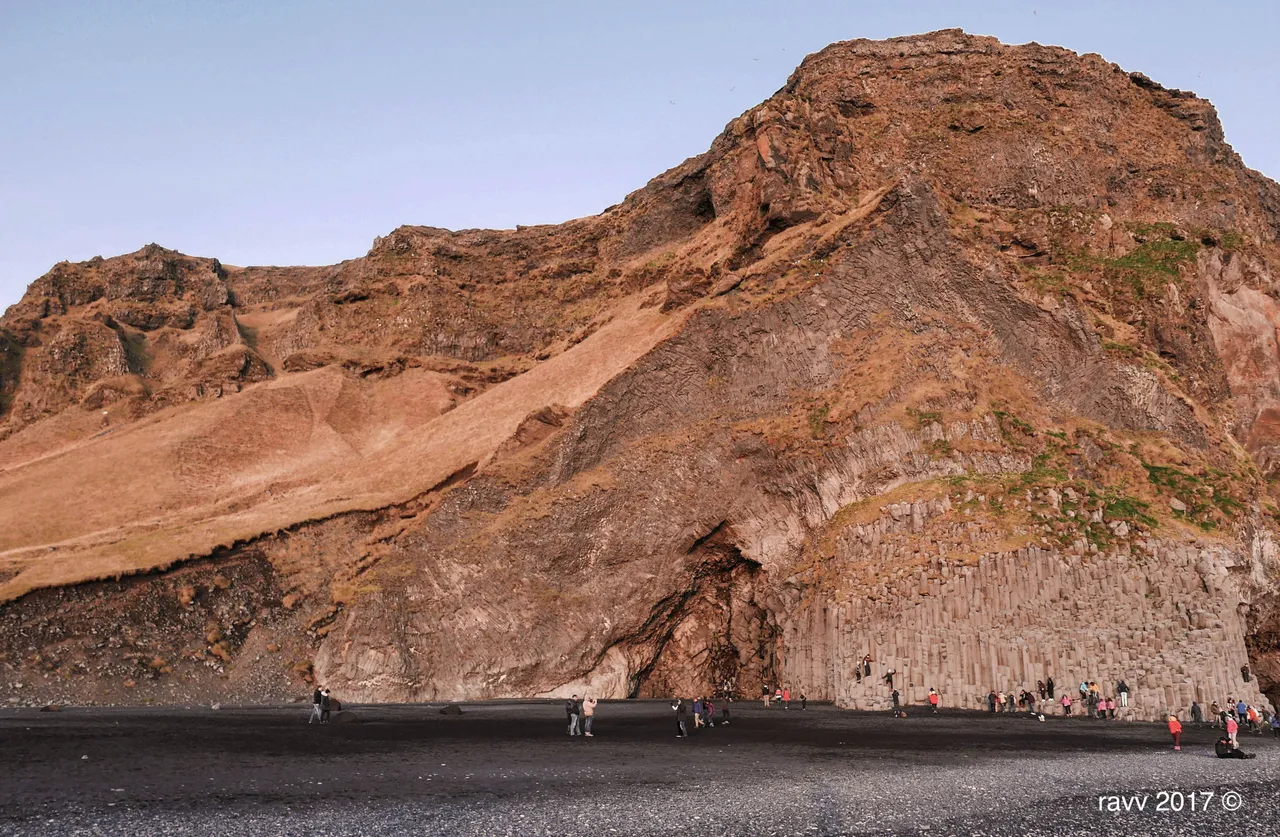
The black sand isn’t the only lava creation on Reynisfjara. There is an enormous mountain, Reynisfjall, with hexagonal-shaped basalt columns at the bottom that looks like organ pipes. This basalt cliff is called Gardar.
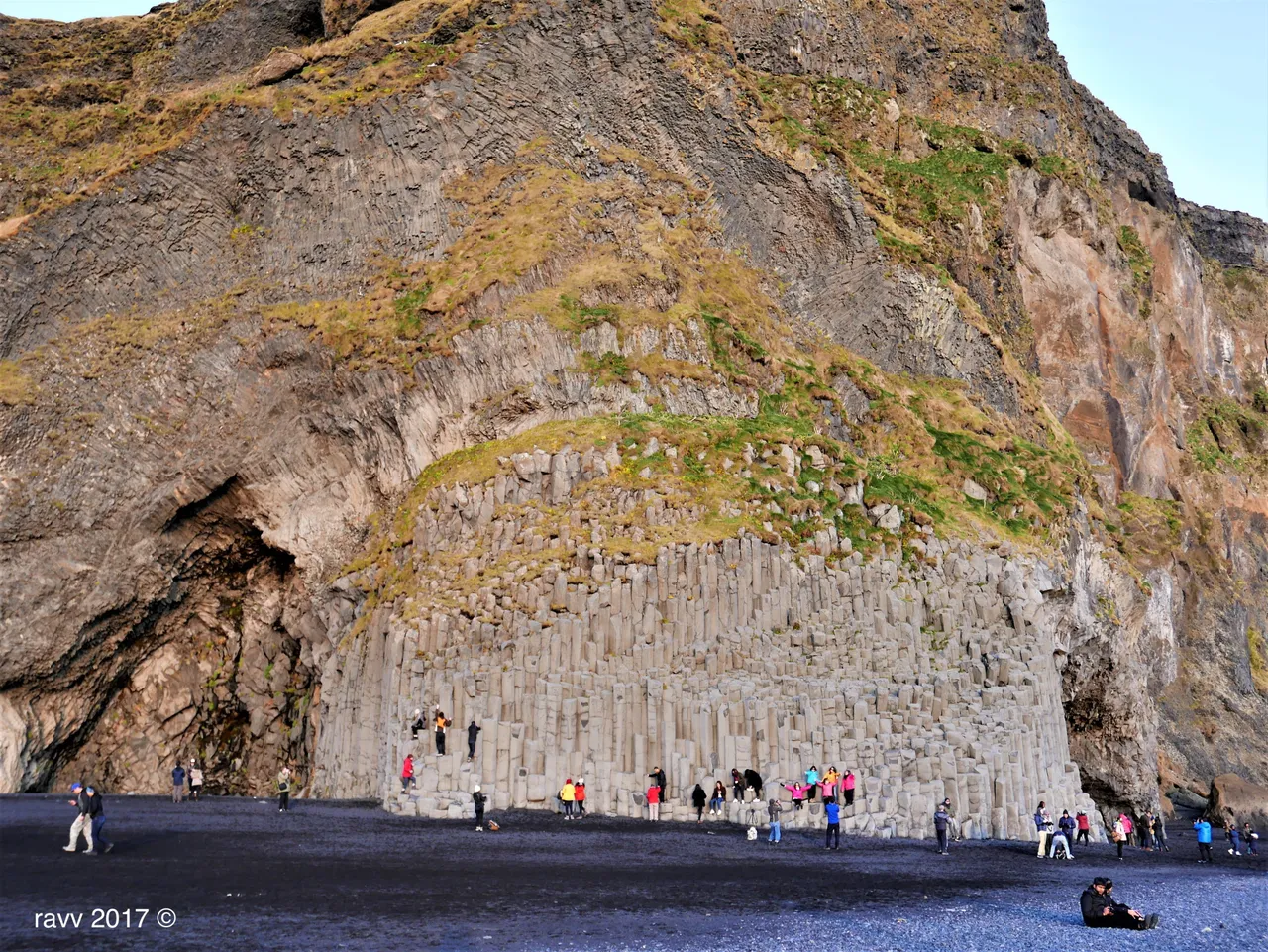
One cannot deny how perfectly shaped these basalt rocks are. It’s hard to imagine that this was the work of nature.
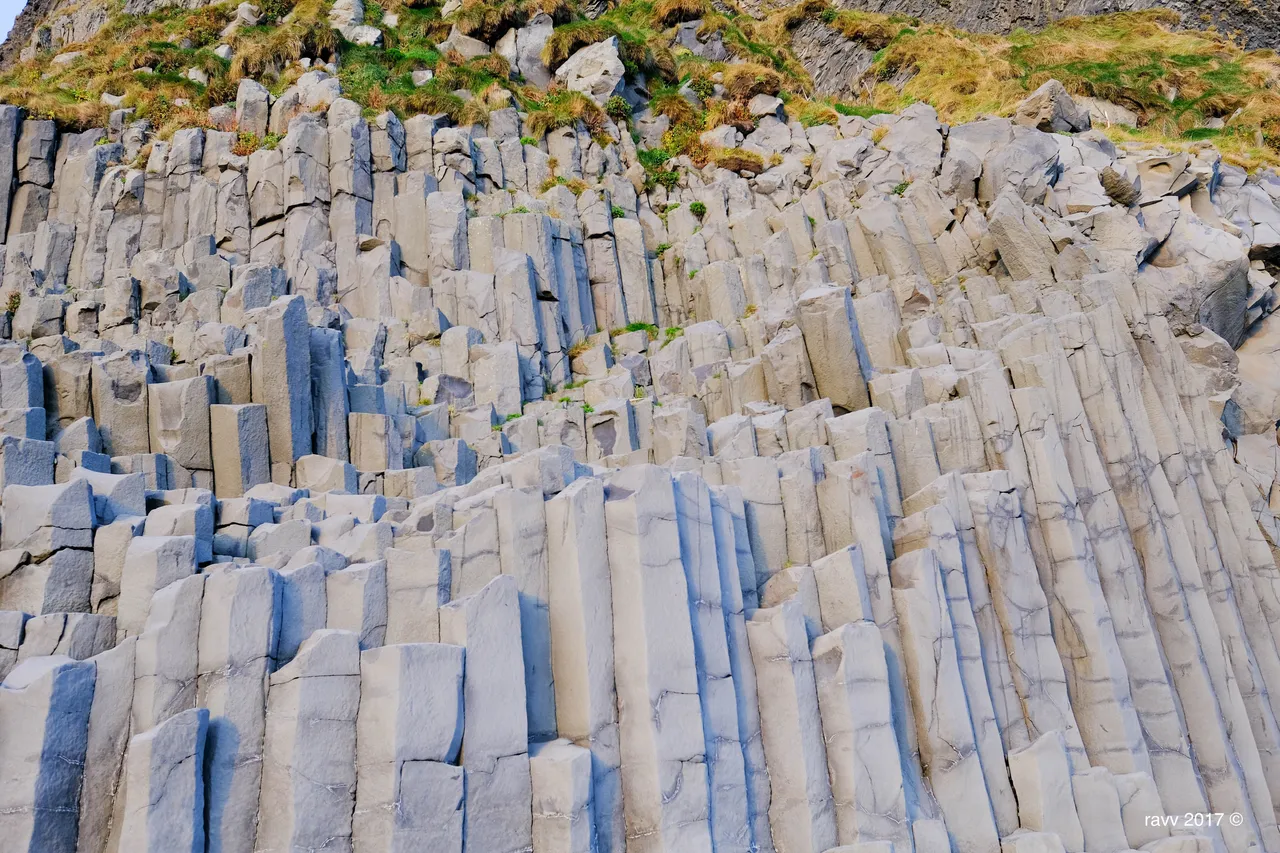
The symmetrical columns were shaped when lava flowed out, cooled and contracted. The slow speed at which the lava cooled created cracks and these hexagonal forms.
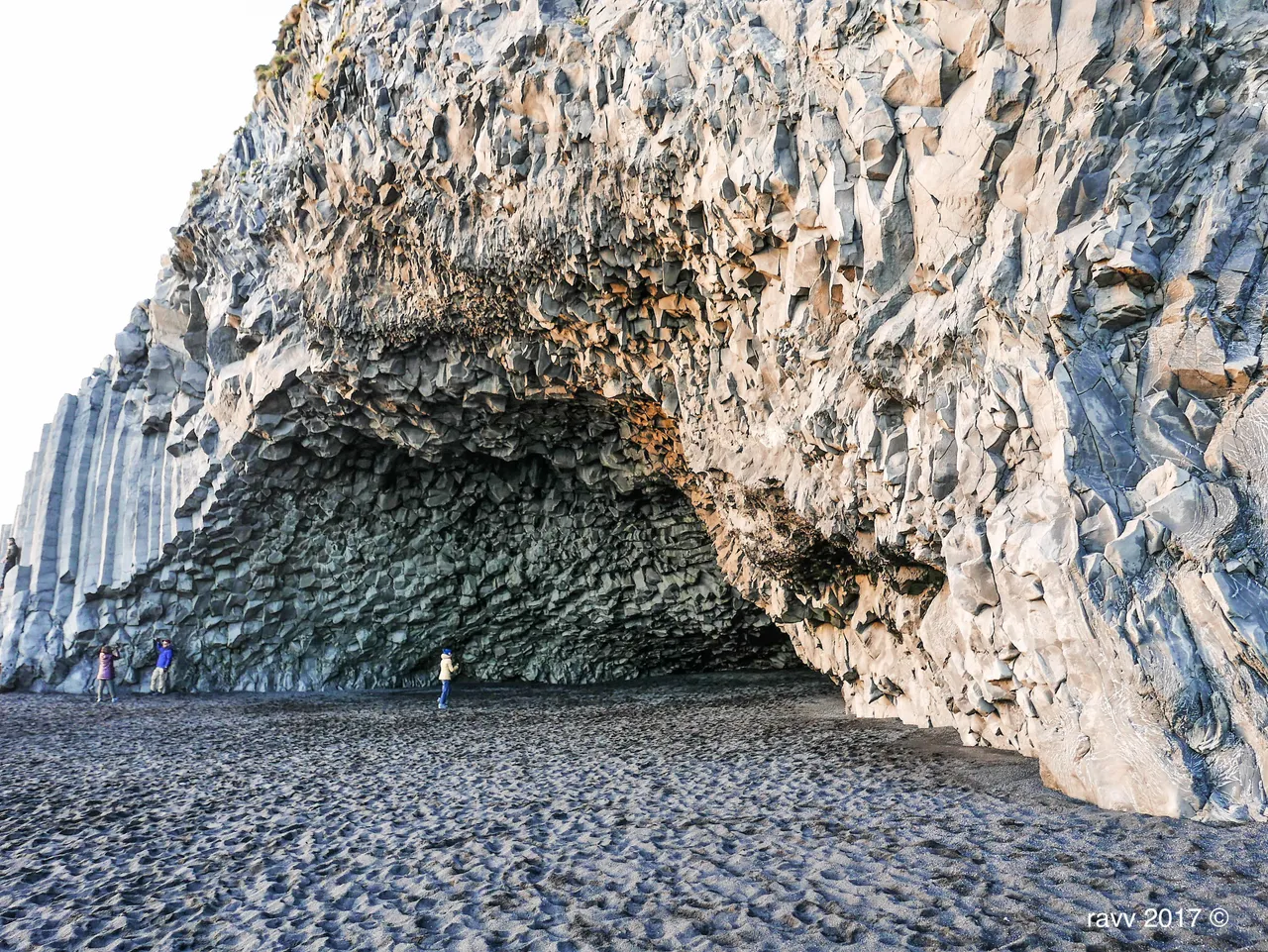
There is also an exceedingly beautiful cave called Hálsanefshellir at the bottom of Gardar.
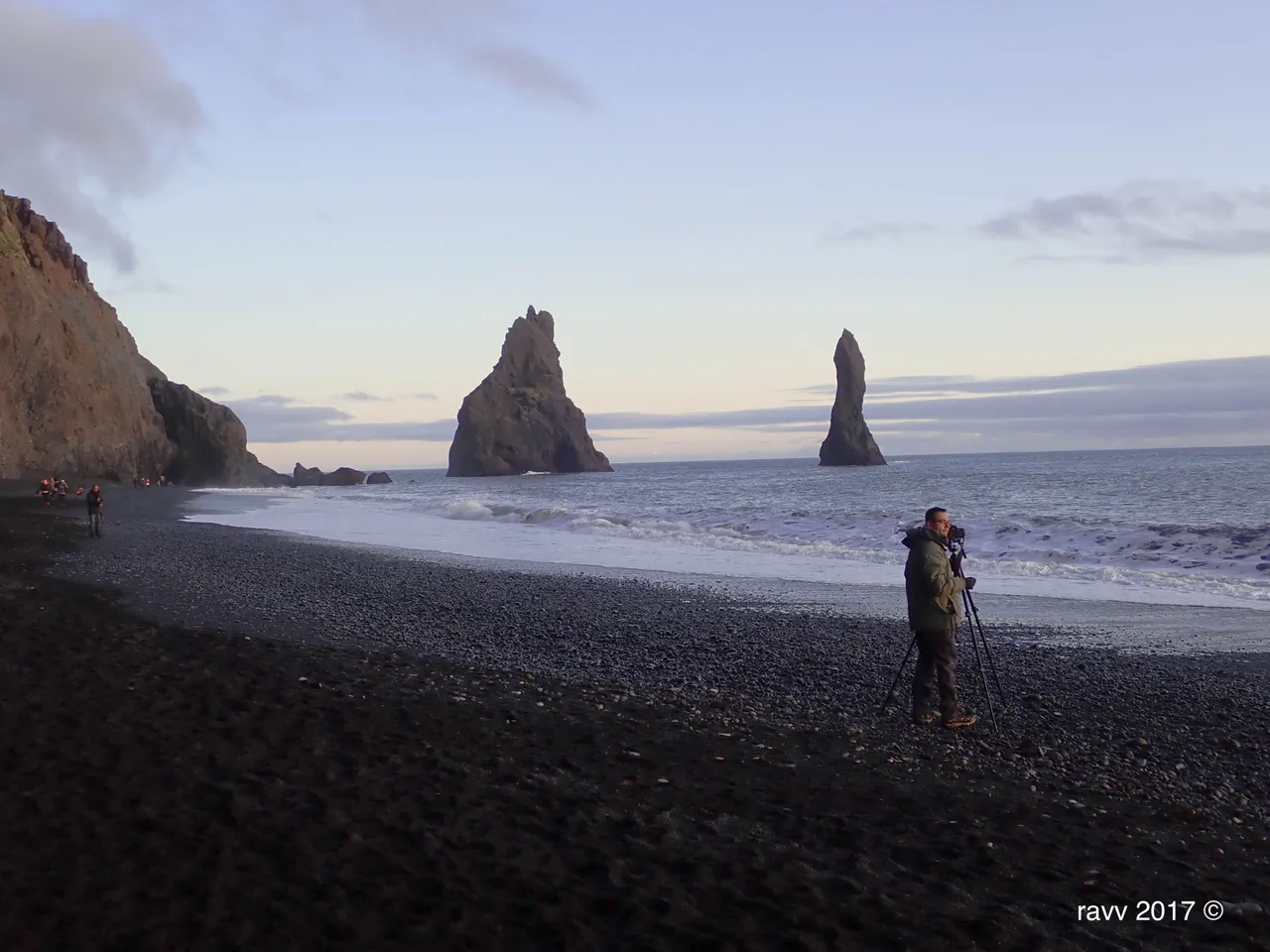
Moreover, there are basalt cliffs that rise from the sea, called Reynisdrangar. A legend is told that one night when two Trolls were trying to pull a ship out of the sea, the sun began to rise. The Trolls caught in daylight were turned into stone, and so got stuck with this craggy rock form for time and eternity.
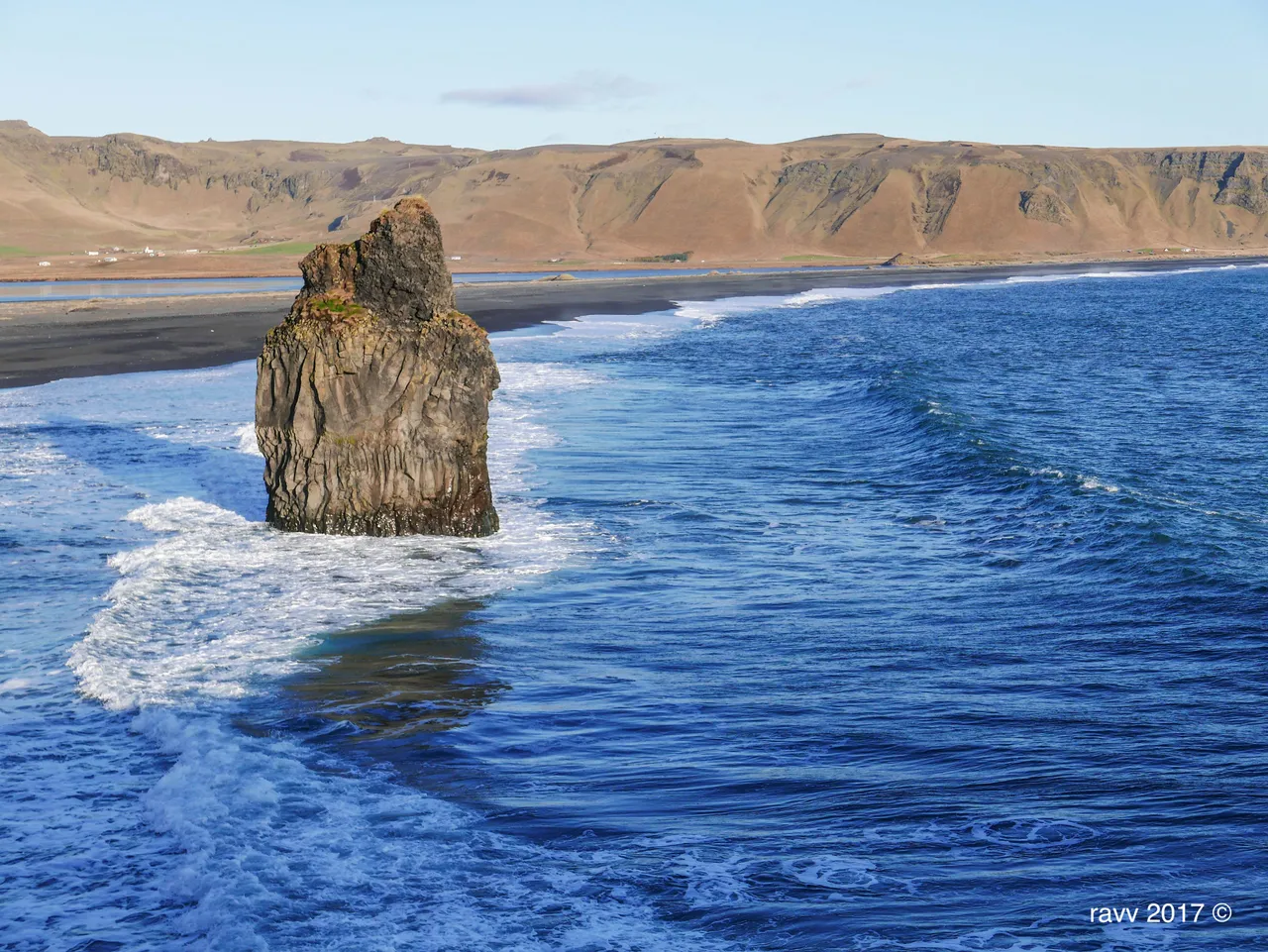
At the end of the Reynisfjara black sand beach was a high lava rock called Arnardrangur or “Eagle Rock”. The name came from the eagles that nested there until 1850.
Though the beach is stunning, rogue waves are common and the current is very strong. There are often tragic stories of dead tourists because they were not aware of the strong wave.
Stay far back from the water's edge and pay attention to all signs and warnings.
As my Mom and Dad spent more time and travelled around Iceland, the more they felt the graceful touch of this country.
The nature’s beauty of Iceland was incredible and it motivated her to roam around every day.
Facts and Information from: